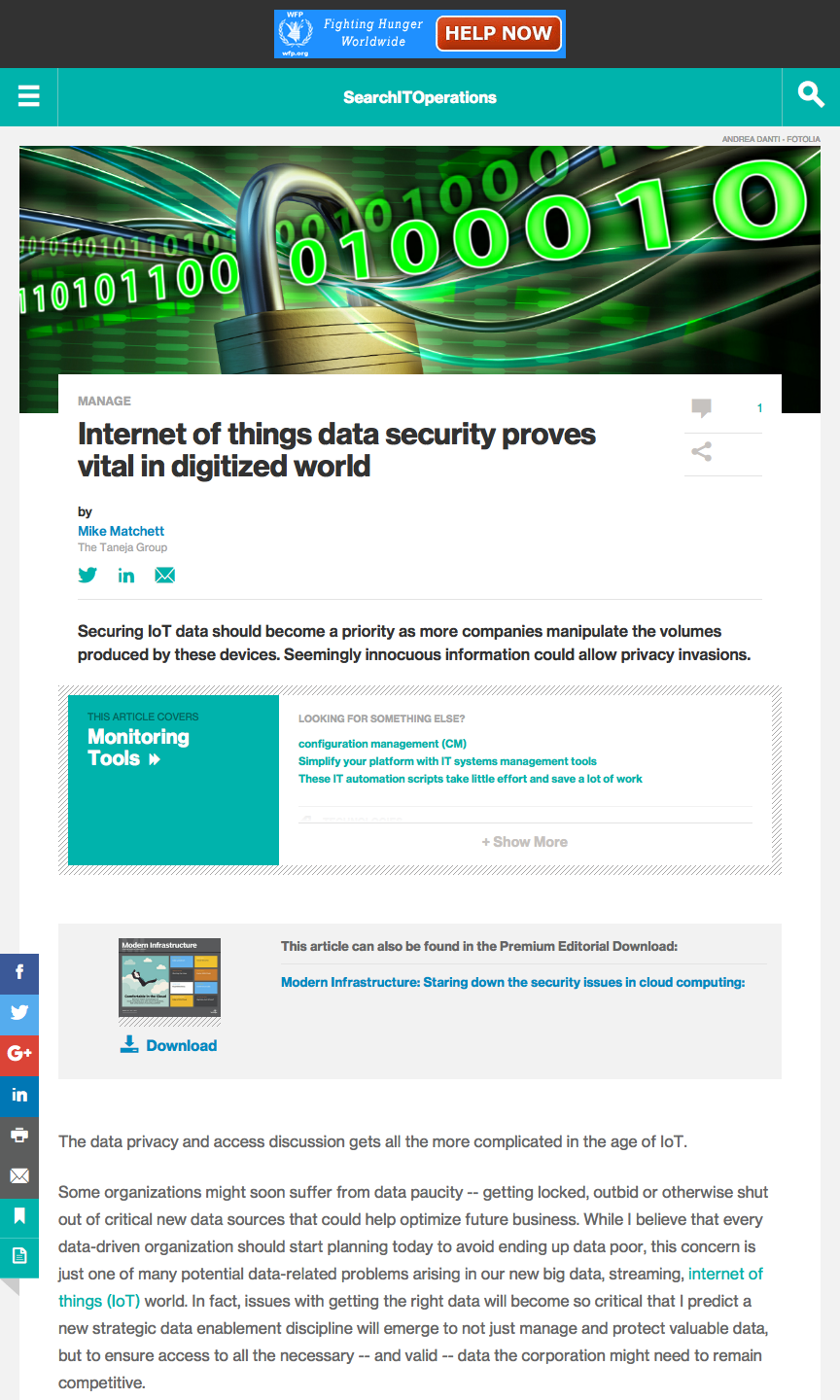Internet of things data security proves vital in digitized world

An IT industry analyst article published by SearchITOperations.
 Securing IoT data should become a priority as more companies manipulate the volumes produced by these devices. Seemingly innocuous information could allow privacy invasions.
Securing IoT data should become a priority as more companies manipulate the volumes produced by these devices. Seemingly innocuous information could allow privacy invasions.
Mike Matchett
The data privacy and access discussion gets all the more complicated in the age of IoT.
Some organizations might soon suffer from data paucity — getting locked, outbid or otherwise shut out of critical new data sources that could help optimize future business. While I believe that every data-driven organization should start planning today to avoid ending up data poor, this concern is just one of many potential data-related problems arising in our new big data, streaming, internet of things (IoT) world. In fact, issues with getting the right data will become so critical that I predict a new strategic data enablement discipline will emerge to not just manage and protect valuable data, but to ensure access to all the necessary — and valid — data the corporation might need to remain competitive.
In addition to avoiding debilitating data paucity, data enablement will mean IT will also need to consider how to manage and address key issues in internet of things data security, privacy and veracity. Deep discussions about the proper use of data in this era of analytics are filling books, and much remains undetermined. But IT needs to prepare for whatever data policies emerge in the next few years.
Piracy or privacy?
Many folks explore data privacy in depth, and I certainly don’t have immediate advice on how to best balance the personal, organizational or social benefits of data sharing, or where to draw a hard line on public versus private data. But if we look at privacy from the perspective of most organizations, the first requirements are to meet data security demands, specifically the regulatory and compliance laws defining the control of personal data. These would include medical history, salary and other HR data. Many commercial organizations, however, reserve the right to access, manage, use and share anything that winds up in their systems unless specifically protected — including any data stored or created by or about their employees.
If you are in the shipping business, using GPS and other sensor data from packages and trucks seems like fair game. After all, truck drivers know their employers are monitoring their progress and driving habits. But what happens when organizations track our interactions with IoT devices? Privacy concerns arise, and the threat of an internet of things security breach looms.
Many people are working hard to make GPS work within buildings, ostensibly as a public service, using Wi-Fi equipment and other devices to help triangulate the position of handheld devices and thus locate people in real time, all the time, on detailed blueprints.
In a shopping mall, this tracking detail would enable directed advertising and timely deals related to the store a shopper enters. Such data in a business setting could tell your employer who is next to whom and for how long, what you are looking at online, what calls you receive and so on. Should our casual friendships — not to mention casual flirting — bathroom breaks and vending machine selections be monitored this way? Yet the business can make the case that it should be able to analyze those associations in the event of a security breach — or adjust health plan rates if you have that candy bar. And once that data exists, it can be leaked or stolen…(read the complete as-published article there)
